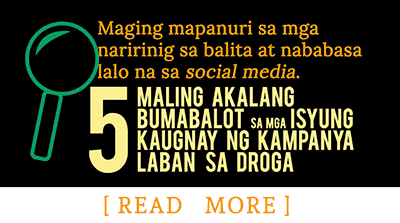Media Coverage
We, the 230 members of the Philippine-Misereor Partnership Inc. (PMPI), express profound concern regarding the Supreme Court’s First Division’s affirmation of the Malabon Regional Trial Court’s decision declaring Sections 4 (58), 16, and 18 of the Philippine Fisheries Code (Republic Act No. 8550, as amended by RA 10654) unconstitutional. This decision would allow large-scale commercial fishers to operate within municipal waters, further threatening the livelihoods of small-scale fishers who depend on these waters for their daily sustenance.
WHILE fishermen groups urged the Supreme Court to reconsider its ruling that would grant commercial fishing companies unrestricted access to local waters, the chairman of the House Committee on Aquaculture and Fisheries Resources met with the Bureau of Fisheries and Aquatic Resources (Bfar) on Monday to discuss possible legislative measures aimed at protecting the welfare of small fishermen.
The Philippine Misereor Partnership Inc. (PMPI), a social development and advocacy network of more than 230 groups, expressed concern on the Supreme Court First Division’s affirmation of the Malabon Regional Trial Court’s decision declaring Sections 4 (58), 16, and 18 of the Philippine Fisheries Code or Republic Act No. 8550, as amended by RA 10654, unconstitutional.
“This decision would allow large-scale commercial fishers to operate within municipal waters, further threatening the livelihoods of small-scale fishers who depend on these waters for their daily sustenance,” the PMPI said in a statement.
We, the 230 members of the Philippine-Misereor Partnership Inc. (PMPI), express profound concern regarding the Supreme Court’s First Division’s affirmation of the Malabon Regional Trial Court’s decision declaring Sections 4 (58), 16, and 18 of the Philippine Fisheries Code (Republic Act No. 8550, as amended by RA 10654) unconstitutional. This decision would allow large-scale commercial fishers to operate within municipal waters, further threatening the livelihoods of small-scale fishers who depend on these waters for their daily sustenance.
Quezon City, Philippines – Amid escalating environmental crises and the urgent need for climate action, Rights of Nature PH has launched the “Rescue Lakes, Rivers, and Oceans” This groundbreaking initiative, supported by over 28 organizations, a good mix of both individual organizations and coalitions; spanning nongovernmental organizations, youth advocates, and faith-based groups, emerged from the recent General Assembly to advocate for the protection and restoration of the country’s critical water ecosystems and resources.
Quezon City, Philippines – Amid escalating environmental crises and the urgent need for climate action, Rights of Nature PH has launched the “Rescue Lakes, Rivers, and Oceans” This groundbreaking initiative, supported by over 28 organizations, a good mix of both individual organizations and coalitions; spanning nongovernmental organizations, youth advocates, and faith-based groups, emerged from the recent General Assembly to advocate for the protection and restoration of the country’s critical water ecosystems and resources.
Quezon City, Philippines – Amid escalating environmental crises and the urgent need for climate action, Rights of Nature PH has launched the “Rescue Lakes, Rivers, and Oceans” This groundbreaking initiative, supported by over 28 organizations, a good mix of both individual organizations and coalitions; spanning nongovernmental organizations, youth advocates, and faith-based groups, emerged from the recent General Assembly to advocate for the protection and restoration of the country’s critical water ecosystems and resources.
Manila, Philippines – The Rights of Nature have convened advocates, researchers, indigenous peoples and interest groups for a general assembly dedicated for bodies of water this November 20 and 21 at the Pope Pius XII Catholic Center. Rights of Nature PH chose the theme, “To hope and act with creation” caring for lakes, rivers and oceans for this year’s gathering.
On the first day, Sr Elizabeth Carranza from the Laudato Si’ Movement Pilipinas opened the assembly with a morning ritual in solidarity for the bodies of water. Then Fr. Christian Buenafe, the executive secretary of the conference of major superiors in the Philippines provided the opening and welcome remarks. The highlight of the day is the rekindling of commitment of RoN Ph by Fr. Edwin Gariguez, the co-convener for Luzon and chairperson of PMPI.
Rights of Nature PH has launched the “Rescue Lakes, Rivers, and Oceans” campaign backed by more than 28 organizations, including NGOs, youth groups, and faith-based coalitions, the initiative aims to restore and protect the Philippines’ vital water ecosystems in response to growing environmental crises and the urgent need for climate action.
Emerging from a recent General Assembly, the campaign seeks to rally public support for the passage of the Rights of Nature Bill—a proposed law that recognizes the inherent rights of ecosystems. If passed, it would provide legal safeguards for the country’s natural resources, ensuring their preservation for future generations.
RIGHTS OF NATURE PH launches ‘Rescue Lakes, Rivers, and Oceans’ initiative to protect key water ecosystems and push for the passage of Rights of Nature Bill.
The initiative is supported by 28 different organizations and coalitions, led by the Philippine Misereor Partnership Inc. (PMPI), Caritas Philippines, Diocesan Social Action Center Calapan, Katutubo Kabataang Umuugat sa Kabundukan ng Sierra Madre, Silang Sagip Kalikasan, and Renacimiento Manila.
AMID the escalating environmental crises and the urgent need for climate action, Rights of Nature PH has launched the “Rescue Lakes, Rivers, and Oceans”
Quezon City, Philippines – Amid escalating environmental crises and the urgent need for climate action, Rights of Nature PH has launched the “Rescue Lakes, Rivers, and Oceans” This groundbreaking initiative, supported by over 28 organizations, a good mix of both individual organizations and coalitions; spanning nongovernmental organizations, youth advocates, and faith-based groups, emerged from the recent General Assembly to advocate for the protection and restoration of the country’s critical water ecosystems and resources.
